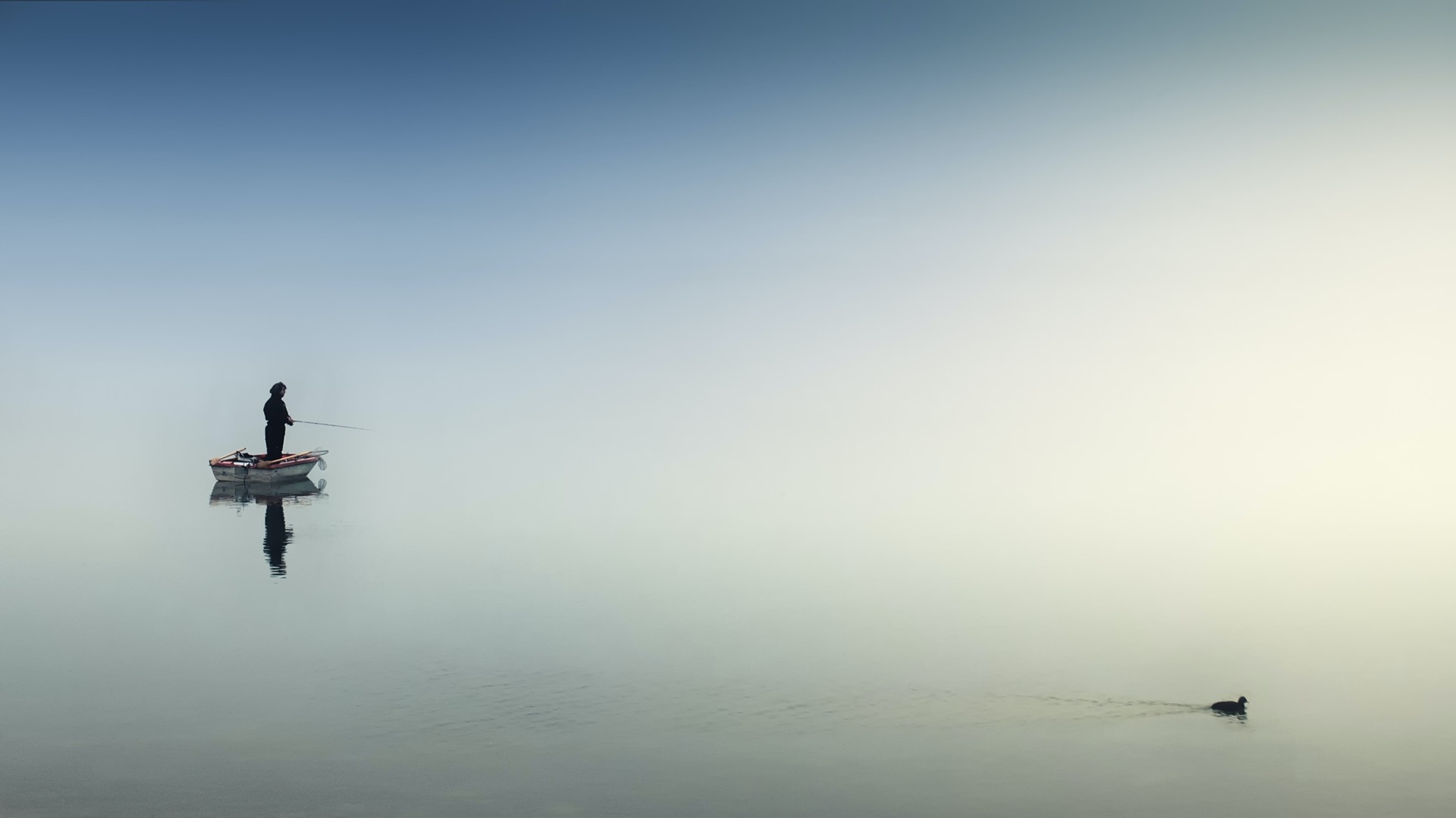Simon, his brother, and their business partners were fishermen whom Jesus called to a very different kind of fishing. “Follow me,” he told them. “From now on you will be catching men.” They were caught by Jesus so they could catch others. And in much the same way, we have been caught by Jesus so we can catch others for Jesus. We ought to see this as a tremendous privilege. Not just that we have been caught—we know that’s a great blessing—but that we get to join Jesus in catching others. We follow him so we can join him in his work. The great work God is accomplishing in this world is catching people for himself. He’s saving them by his grace and for his glory. What’s amazing is that he uses people like you and me to help accomplish that. He saves people through the good news of the gospel and he tells you and me to speak out that news. He calls us to be fishers of men, to catch people alive.
How can we do that? That’s where we can learn from the fishing metaphor Jesus uses in Luke 5 verses 1-11. In fact, I think we’re supposed to learn from the fishing metaphor, to think diligently about what it means and about how evangelism is like fishing. Just think about this: Jesus gets on a fishing boat with a fisherman to do a fish miracle all leading toward a fishing metaphor. He clearly wanted Simon to think about this word picture, and to live it out. He wants us to think about it. So let’s draw a few comparisons that, I trust, are legitimate without being trite. In what ways is evangelism kind of like fishing?
First, fishing requires going. This is simple, obvious, but still overlooked. A fisherman needs to go out into the water where the fish are. And once a fisherman has gone out into the water, he needs to let down his nets. Just sitting in his boat bobbing on the waves won’t do it. He needs to cast his net into the water. And in that way, we need to go to where the people are, and we need to tell them about Jesus. We need to go and we need to let out the net of the gospel.
I think sometimes our evangelism is like fishing for tuna in a trout pond.
Second, fishing requires expertise. A skilled fisherman learns about fish so he can use the right nets, or the right bait, or go out fishing at the right time of day. You and I need to consider the best and most effective ways to reach the people around us. I think sometimes our evangelism is like fishing for tuna in a trout pond. We aren’t going about it in effective ways. Sharing the gospel is about more than just learning and reciting a generic gospel presentation. It’s about knowing people and loving people—about loving them enough to get to know them. The better we know people, the better we can show them how the gospel addresses their deepest needs. We can listen to them carefully, then address their particular questions, concerns, griefs, and misconceptions.
Third, fishing requires diligence. A fisherman won’t be successful if he just fishes when he feels like it or when just the right opportunity comes along. He needs diligence. He needs to structure his days around his task. And in the same way, we need diligence in sharing the gospel. It’s not enough to just hope for opportunities to come along. We need to plan how we will create and embrace opportunities to tell others about Jesus.
Fourth, fishing depends upon providence. Most fishermen call this element luck, but it’s better to stick with providence. At the end of the day, the fisherman makes his plans, and goes out, and casts his nets, and uses every bit of expertise he’s got, yet he knows that what happens next is beyond him. Sometimes he will make a huge catch and sometimes he’ll catch nothing. God uses us to share the gospel, but he’s the one who must bring conviction of sin and repentance and salvation. Our task in evangelism is to be thoughtful and creative and prayerful and obedient in sharing the gospel and then to leave the results to him.
It’s really hard to get enthusiastic about fishing when you believe there are no fish in the lake.
Fifth, fishing requires confidence. It’s really hard to get enthusiastic about fishing when you believe there are no fish in the lake. That’s where Simon was at, right? He was convinced there was nothing to catch. But God knew there was a tremendous haul awaiting him. And I wonder if we can think that way when we share the gospel. We hesitate because we are convinced that God is not really going to do anything. Really, we hesitate because we aren’t convinced that it’s actually God’s joy and delight to save the lost. Our hesitation is based on a total misunderstanding—a blasphemous misunderstanding—of God’s character. We’ve got to believe that God loves to save the lost and that he hasn’t yet caught all those who are his. Simon was convinced of scarcity—”There are no fish in this lake!”—but God wanted to show him abundance—”There are so many fish in this lake!” We need to approach evangelism with optimism rather than skepticism, with faith in the character and promises of God.
Do you see it? In these ways, and probably many more, evangelism is like fishing…









